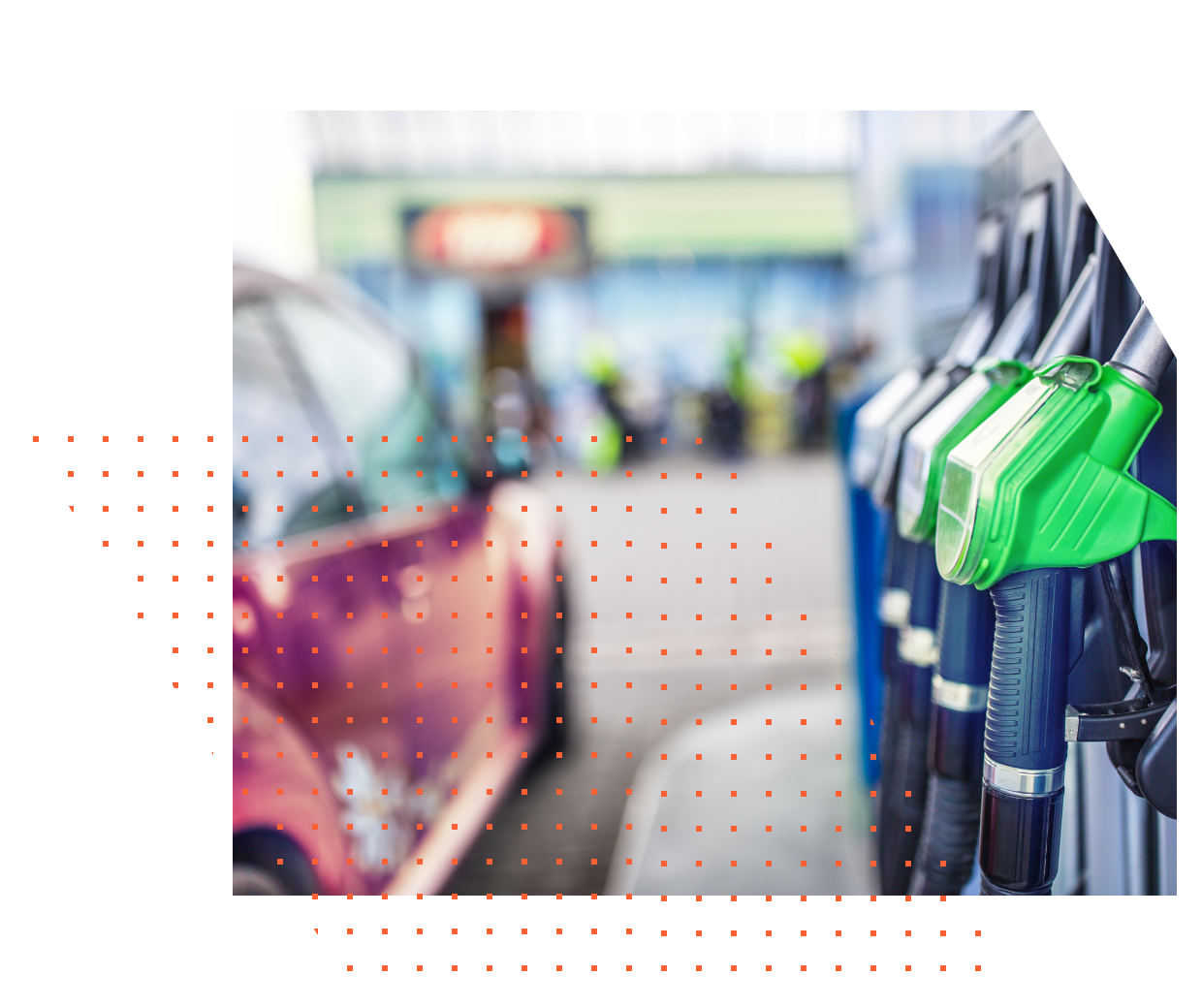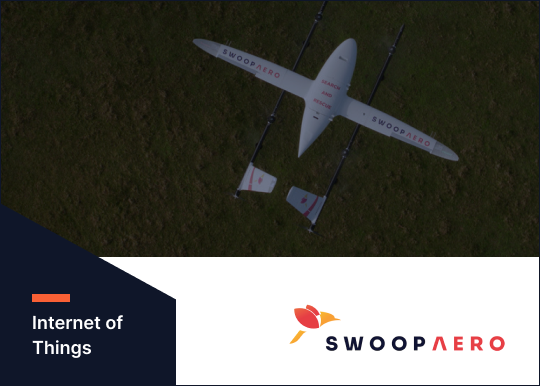CASE STUDY
EMS delivers 500% ROI through IoT capabilities using AWS
Petroleum retailers in Australia are improving the performance and safety of their service stations with an AWS IoT–enabled solution called Fuelsuite from EMS.


At a glance
EMS specialises in solutions that provide petrol retailers with performance data gathered from sensors located around petrol stations. Fuelsuite uses AWS IoT Device Management to control the edge devices collecting petrol station data, processes the data with Amazon EC2, and schedules messages to and from the edge devices by using Amazon SQS.
Benefits of the solution:
- Improves petrol station performance with a reliable IoT solution
- Supports proactive management with near-real-time data
- Delivers 500% return on investment through IoT capabilities
- Enables development and launch in just under 12 months
DiUS services:
- Internet of Things
- Data & Analytics
AWS services:
- AWS IoT Device Management
- Amazon EC2
- Amazon SQS
- Amazon RDS
- Amazon S3
- Amazon Elasticsearch Service
About EMS
Australia-based Environmental Monitoring Solutions (EMS) specialises in solutions that help petrol retailers gather and analyse data on the performance of their petrol stations. Launched 25 years ago, EMS offers technology that provides remote monitoring and 24/7 support services—helping customers boost sales, reduce maintenance expense, and decrease the risk of accidents.
Opportunity
EMS customers such as Viva Energy (Shell), PUMA Energy, BP, and 7-Eleven typically own and operate hundreds of petrol stations across Australia. The stations need to operate highly efficiently because profit margins are small. Yet, at the same time, they have to offer great customer experiences, ensure employee safety, and minimise their environmental impact. Sometimes accidents do occur, and a typical EMS customer is likely to incur annual costs of AU$15 million (US$12.13 million) for cleaning up underground petrol tank leaks or vehicle fuel tank contamination.
To help customers maximise efficiencies while addressing the need for service excellence, safety, and environmental protection, EMS developed Fuelsuite, which enables customers to switch from legacy technologies that are largely manual and unify station management— significantly reducing costs. With Fuelsuite, customers can monitor inventories, deliveries, and prices. The solution also raises alarms in event of possible environmental incidents, such as underground tank overfills. After the successful launch of Fuelsuite, EMS focused on product development. It looked to connect sensors in the stations’ underground tanks and pumps and, regardless of the configurations of those sensors, collect all their data at 30- second intervals. The data would then be aggregated on a cloud-computing infrastructure and displayed via a web-enabled interface in Fuelsuite in near-real time.
Russell Dupuy, founder and managing director of EMS, says, “Our job was to find an IT partner and cloud-computing provider that could help us re-engineer our Fuelsuite technology and deliver an innovative off-the-shelf product that was user-friendly and easily customisable.”
Solution
EMS researched the market for cloud-computing providers, focusing specifically on providers of Internet of Things (IoT) technology. Through IoT, EMS would be able to collect all the sensor data and deliver it to the Fuelsuite interface. In 2015, when EMS first started looking at cloud providers and their IoT services, Dupuy found that Amazon Web Services (AWS) was way ahead of Microsoft Azure. “From what I’d read, I was more confident in the AWS IoT roadmap,” says Dupuy. “We were investing millions of dollars in this project, so I had to be sure of the provider we were going to work with.”
EMS then engaged with AWS Partner Network (APN) Advanced Consulting Partner DiUS, which organised a two-day workshop with key stakeholders to agree on a shared vision for Fuelsuite. “The expertise that DiUS has in AWS and IoT gave us a lot of confidence,” says Dupuy. Just as importantly, DiUS agreed to the plan of designing, supporting productisation, and launching the IoT-enabled Fuelsuite solution for a major EMS customer retail network within 12 months. “DiUS showed that it was possible to meet our schedule by rolling out the platform at first with just enough AWS IoT capabilities for customers, and then extending those capabilities down the line.”
DiUS and EMS designed the new version of Fuelsuite so that data from the sensors is aggregated by a custom-built physical device, called Fuelscan® , which is situated inside the petrol stations. Fuelscan then wirelessly transmits the data to the AWS Cloud, where it gets processed and delivered via the Fuelsuite web-based interface. So that EMS is able to offer customised functionality for different customers, DiUS designed the solution to take advantage of AWS IoT Device Management to securely onboard, organise, monitor, and remotely manage the Fuelscan devices.
It also uses Amazon Simple Queue Service (Amazon SQS) to queue messages from the AWS Cloud to Fuelscan devices and relies on Amazon Elastic Compute Cloud (Amazon EC2) to process the messages to and from the devices. In addition, the sensor data is stored from the devices in an Amazon Relational Database Service (Amazon RDS) instance, and Amazon Elasticsearch Service is used to keep a historical record of all Fuelscan data. Finally, the collected data is archived in Amazon Simple Storage Service (Amazon S3) buckets.
“With our AWS IoT– enabled Fuelsuite solution, customers manage their petrol stations proactively rather than reactively, gaining a complete picture of petrol station performance to dramatically improve efficiencies and detect fuel leaks early to minimize environmental impacts.” – Russell Dupuy, Founder and Managing Director, EMS
Outcome
At present, more than 1,000 petrol stations in Australia are benefiting from the IoT-enabled Fuelsuite solution. Station operators get near-real-time data on the performance of their stations, including how much petrol is being sold and how much is in the underground storage tanks. It also includes data on the pressure inside the hoses connecting the petrol pumps to the automobiles, and on the temperature and petrol level inside the underground tanks. “With our AWS IoT–enabled Fuelsuite solution, customers manage their petrol stations proactively rather than reactively—gaining a complete picture of petrol station performance to dramatically improve efficiencies and detect fuel leaks early to minimise environmental impacts,” says Dupuy.
The potential savings from proactive rather than reactive management are significant. Likewise, operators can use the performance data on fuel sales to optimise the distribution of the most heavily used petrol pumps. “We expect that customers gain a 500 percent return on their annual costs of the AWS IoT–enabled Fuelsuite solution,” says Dupuy. Furthermore, EMS expects the return on investment to increase over time. “The AWS IoT Core platform is extensible so that we can incorporate more data from the petrol stations.”
Dupuy says that without AWS and DiUS, EMS would have found it challenging to take advantage of IoT. “The expertise of DiUS and the total reliability of the AWS infrastructure meant we could develop and roll out our IoT-enabled Fuelsuite in 12 months and be sure it would meet the needs of our customers.”
EMS, in partnership with DiUS, is now developing Fuelsuite further, adding new services for the fuel industry. It will also be launching the product internationally. Dupuy says, “An advantage of AWS is that machine learning, deep learning, and other new artificial intelligence services can easily be applied to a customer’s aggregated data that is collected through the Fuelsuite solution.”
Want to learn more? Read the AWS case study.






